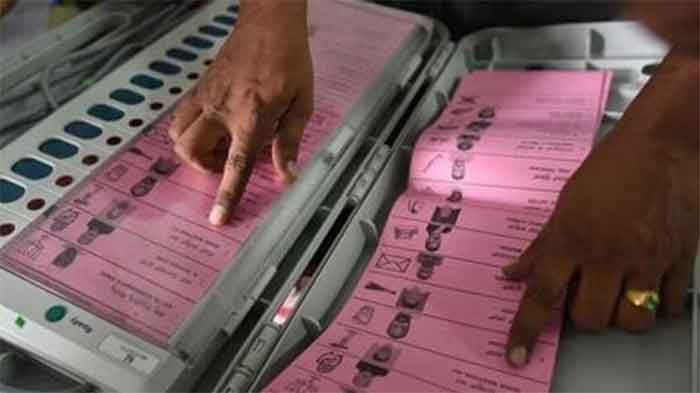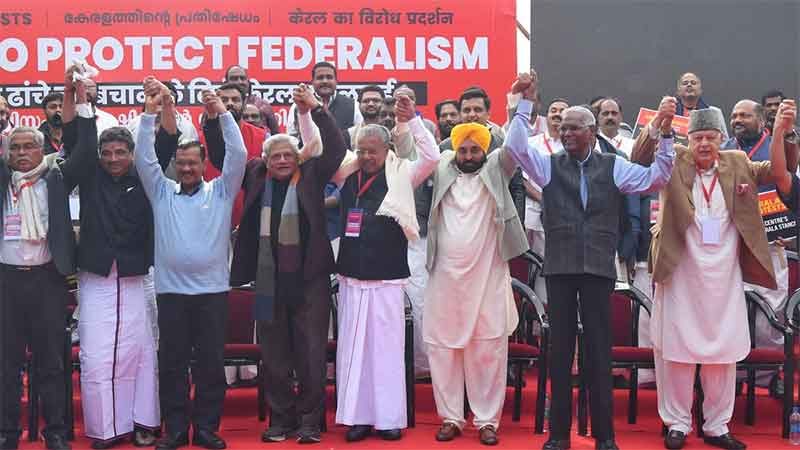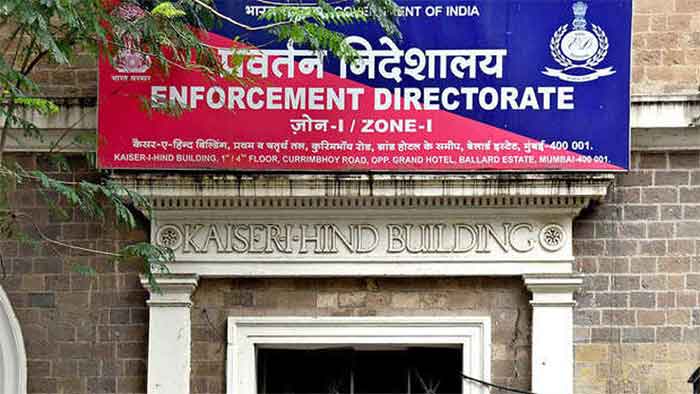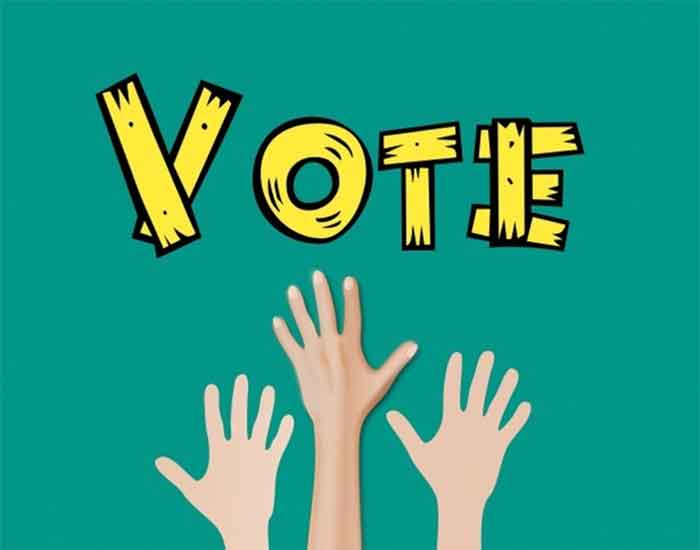
To
Smt. Droupadi Murmu
The President of India
Respected Rashtrapati Ji,
The Centre has set up a High-Level Committee (HLC) to examine “simultaneous elections to the House of the People (Lok Sabha), State Legislative Assemblies, Municipalities and Panchayats, keeping in view the existing framework under the Constitution of India and other statutory provisions, and for that purpose, examine and recommend specific amendments to the Constitution, the Representation of the People Act, 1950, the Representation of the People Act, 1951 and the rules made thereunder and any other law or rules which would require amendments for the purpose of holding simultaneous elections.”
The Terms of Reference for the HLC seem to start with the assertion that elections should be conducted simultaneously for the Parliament and the State legislatures and that the HLC should suggest the necessary amendments to the Constitution and the other required legislative steps.
It would have been in order had the Centre, before rushing into taking such a far-reaching decision on the idea of “one Nation, One Election”, held prior consultations with the States, and all the political parties, in line with the democratic traditions of the country. It is significant that the Leader of the largest party in opposition in the Lok Sabha, who has been included as a member of the HLC, has tendered his resignation on the ground that the decision to set up the HLC implied an attempt to thrust on the nation “a constitutionally suspect, pragmatically non-feasible and logistically unimplementable idea”.
Simultaneous elections to the Parliament and the State legislatures can not be held within the existing framework of the Constitution. They can be conducted only through appropriate amendments to the Constitution, the Representation of the People Act 1951, and the Rules of Procedure of Lok Sabha and State Assemblies.
While India is no doubt one nation, there are wide diversities in terms of culture, language, geological constraints, socio-economic characteristics and so on, which make it necessary to allow the voters of different regions and sub-regions to elect candidates and political parties on the basis of their local choices rather than on the basis of choices at the national level. Conducting elections simultaneously for the Parliament, the State Assemblies and the local bodies can result in national choices being imposed to override the local choices, obfuscating the idea of federalism that constitutes an essential component of the basic structure of the Constitution.
The Centre recently introduced the CEC and Other ECs (Appointment, Conditions of Service and Term of Office) Bill, 2023, which will render the Election Commission subservient to the Central political executive. Over the last few years, the Centre has also taken steps to shrink the size of the divisible pool of revenue resources to be allocated by the Finance Commission on equitable terms between the Centre and the States and among them, by steeply enlarging the share of the revenue resources to be transferred by the Centre to the States under Article 282 of the Constitution that reduces the political space of regional political parties and weaken the political leadership of the States, which further poses a threat to federalism. Viewed in that context, the latest move on the part of the Centre to move quickly on pushing forward the idea of “One Nation, One Election” raises serious apprehensions about the underlying intention.
There are far more urgent measures of electoral reform that the nation ought to take up in preference to the grandiose idea of “One nation, One Election”. Some of them are indicated below:
- Even though women’s share in the population is comparable to that of men, their representation in Lok Sabha and Rajya Sabha remains woefully low, at 14.9% and 14.1% respectively. Among the States, the Chhattisgarh assembly has the highest representation of 14.4% for women with some northeastern States providing them no representation at all (https://pib.gov.in/PressReleasePage.aspx?PRID=1882226). The reason for this is the reluctance of political parties including BJP and Congress to put up sufficient numbers of women candidates in elections. The Constitution (One Hundred and Eighth Amendment) Bill aimed at reserving one-third of all seats for women in the Lok Sabha and the State legislative assemblies was introduced in the Parliament more than a decade ago but it is yet to see the light of the day. Had the NDA government taken a positive decision on it, it would have gone a long way towards involving women more actively in the legislative process.
- According to an analysis made by the Association for Democratic Reforms (https://adrindia.org/content/17th-lok-sabha-highest-number-mps-facing-criminal-charges-2004) 43% of the members of the Parliament face criminal charges, while 84% have self-declared assets worth more than Rs.1 crore. The situation in the case of State assemblies is no better. Most political parties are reluctant to exclude candidates with criminal backgrounds from contesting elections nor are they willing to put up candidates from low-income sections of the population, as criminal intimidation of voters and money power continue to dominate India’s elections. Had the NDA government cared to reverse this trend, it would have set an example to the other political parties in the matter of choice of candidates and also introduced a Bill to legalise the exclusion of criminality in politics.
- The Election Commission of India (ECI) has proposed important electoral reform measures time and again but the successive governments have failed to act on the same. In July 2004, the ECI suggested legislative measures to enhance the Commission’s independence by providing Constitutional protection to its members, decriminalising politics by imposing restrictions on candidates with criminal background from contesting elections, strengthening the anti-defection law etc. Instead of accepting those proposals and taking appropriate legislative measures, the successive governments including the present NDA government have continued to act in a manner that weakens the Commission as an institution and encourages those with a criminal background to contest elections. In addition, they have become willing parties to exploit defections of legislators from one party to another to their advantage. The open use of money power to coerce elected legislators to defect from one party to another has assumed ugly proportions in India’s elections and eroded their credibility. Had the NDA government cared to reform the system, instead of becoming a party to such unethical machinations, it would have taken tangible legislative steps to reform the electoral system.
- Instead of putting a stop to money power tainting India’s elections, the present NDA government not only went to extraordinary lengths to neutralise the law that prohibits political parties from accepting donations from foreign sources but also went one step further to relax the ceiling on corporate political donations and introduce a highly regressive, opaque law to allow corporate and other anonymous donations to fill the coffers of itself and other parties through a questionable scheme of Electoral Bonds.
- Section 128 of the Representation of the People Act, 1951 mandates secrecy of voting. The use of EVMs without the totalising facility, as adopted by the Election Commission of India (ECI) at present, violates this requirement, as it does not permit the “mixing” of ballots to hide the booth-wise identity of sections of voters. In an environment in which divisive politics are resorted to on an increasing scale to win elections, this assumes great importance. The use of EVMs is therefore prima facie illegal. In addition, the voter is entitled to be assured that the vote cast through an EVM has been registered in favour of the candidate for whom he/ she has voted. This can be ensured only through a 100% verification of the EVM count w.r.t actual count of the voter-verifiable paper audit trail (VVPAT). Considering that EVM technology is not entirely infallible, as evidenced by experience elsewhere and extensive scientific research literature on the subject, as a measure of reform, there should be a legislative restriction on the use of EVMs. Had the present NDA government cared to enhance the integrity of the electoral system and promote public trust in it, it would have introduced such legislative measures
- The system of “proportional representation” that renders the legislative bodies more representative could have been extended to the Lok Sabha and the State legislative assemblies. Had the present NDA government cared to move in that direction, it could have accorded due importance to the necessary legislative amendments
From the point of view of upholding the public interest, pursuing the ambitious idea of conducting elections simultaneously to the Parliament, the State legislatures and the local bodies at the cost of federalism, the Centre should ponder over the kind of electoral reform measures referred above and take necessary steps to enhance the credibility of elections in India.
I appeal to you, as the Constitutional head of the nation, to intervene and prompt the Centre to consider more urgent electoral reform measures like the ones cited above in preference to pursuing the idea of “One Nation, One Election”.
Respectfully,
E A S Sarma
Former Secretary to the Government of India
Visakhapatnam















































